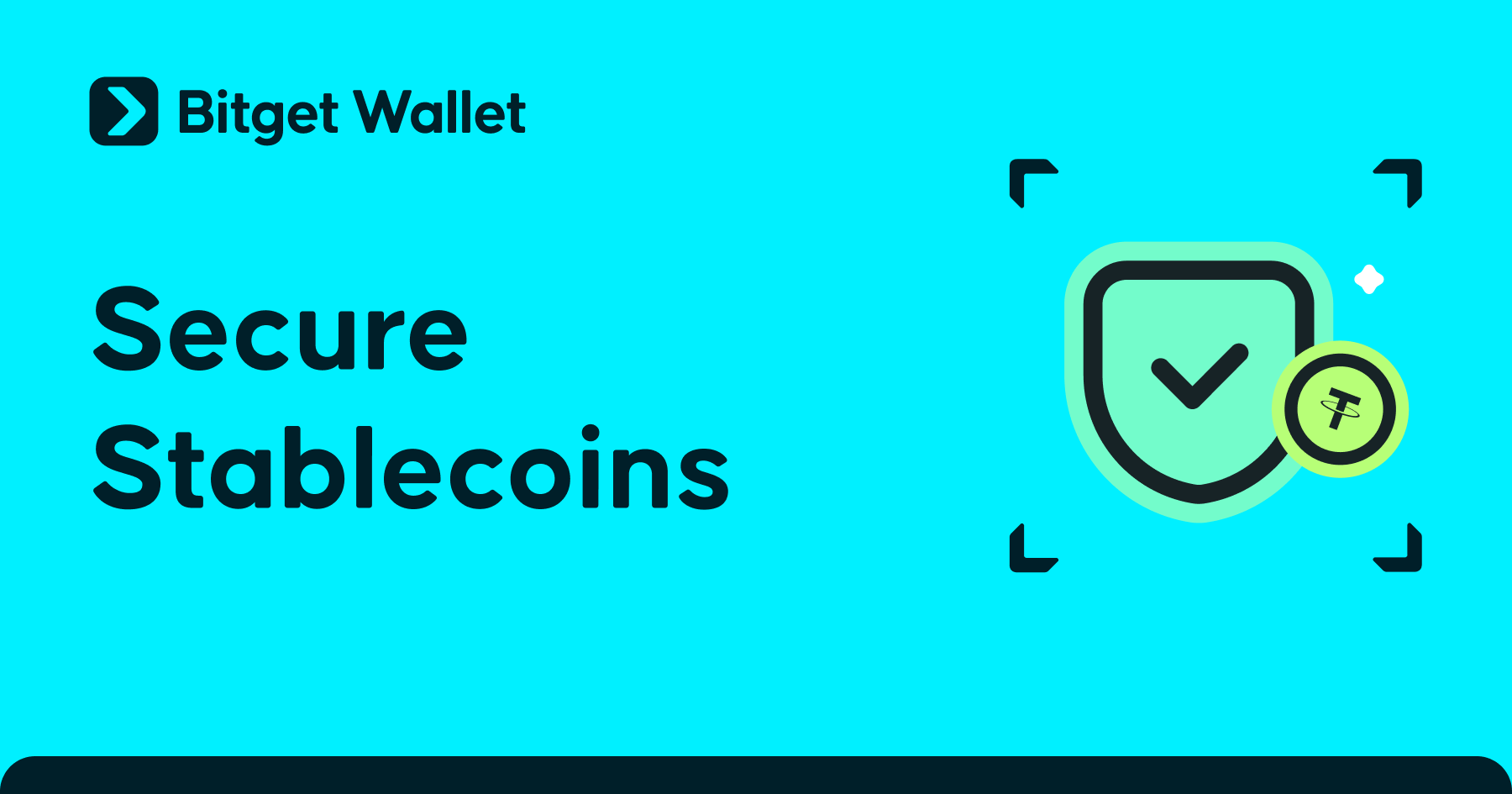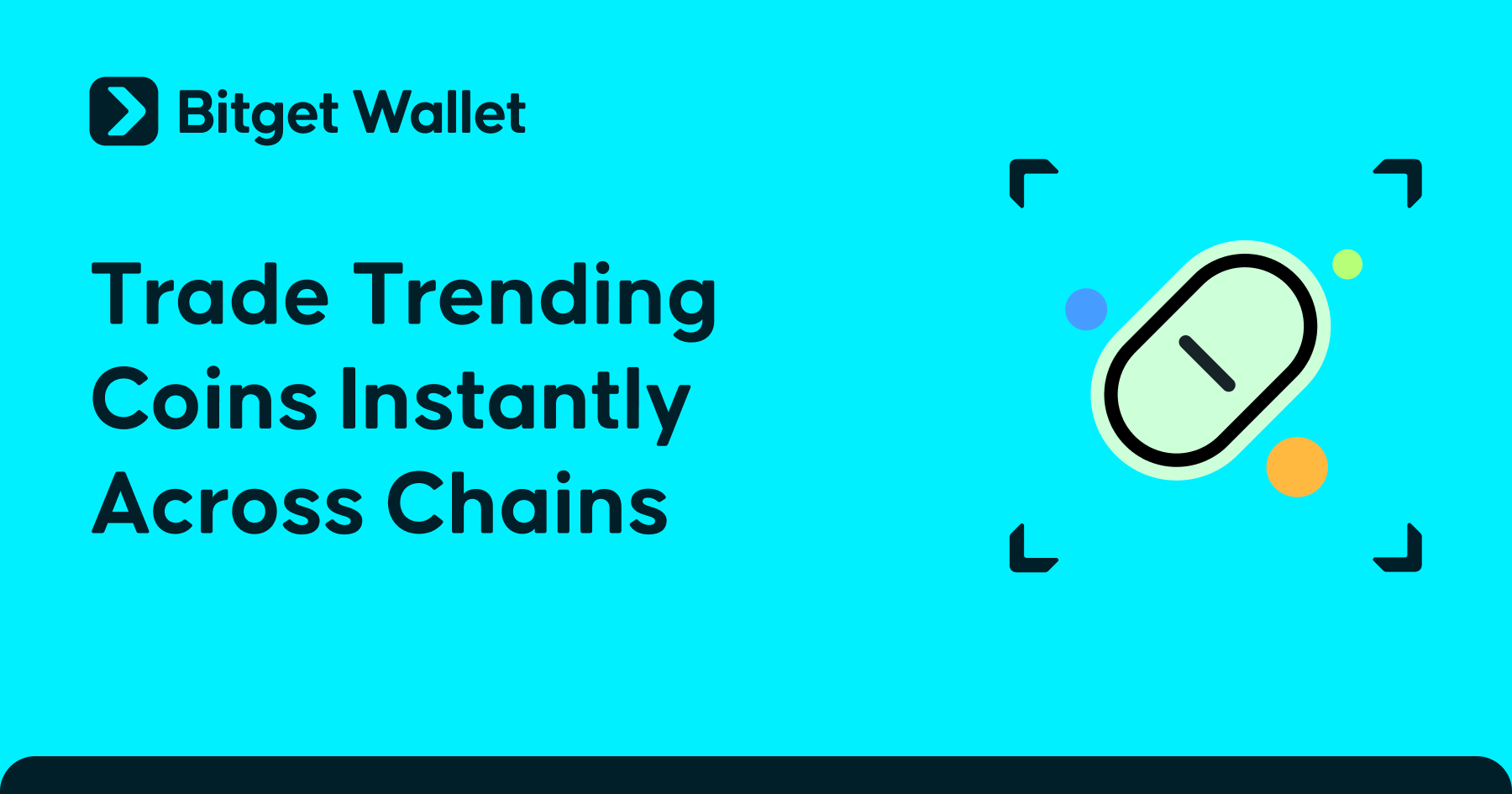What Is a dApp? Complete Guide to Decentralized Applications
What is a dApp? Simply put, a dApp (decentralized application) is an application that runs directly on the blockchain network, instead of running through the old-fashioned centralized server. It uses smart contracts to run transparently, securely and automatically, without any third-party control.
When Web3 explodes in DeFi (decentralized finance), GameFi and digital ownership, dApps are becoming the real backbone of the "trustless" Internet. From coin trading, playing NFT games, to digital identity management, users are increasingly using dApps in their daily Web3 experience. The good news is that there are wallets like Bitget Wallet that help you access dApps more easily, securely and intuitively than ever - just a few steps and you're done!
Key takeaways
- dApps are apps that run on the blockchain, using smart contracts to automatically process, cutting out the middleman.
- The main advantages are more Privacy, absolute transparency, no fear of censorship - great for finance, gaming and identity in the Web3 era.
- Bitget Wallet helps you easily access dapps with built-in Browser integration in the wallet, full chain support, top security design!
What is a dApp & How Does It Work?
dApps are fundamentally different from traditional apps: While most apps rely on centralized servers, dApps run on a blockchain peer-to-peer network, with logic defined by smart contracts. Once deployed, dApps can operate independently without the need for developers.
What makes an app “decentralized”?
dApps eliminate centralized control by:
- Running on a blockchain (like Ethereum, Solana)
- Data and logic are distributed across thousands of nodes
- Transactions are verified by a decentralized consensus mechanism → Impossible to censor or manipulate.
How do smart contracts power dApps?
Smart contracts are self-executing code on the blockchain. For example:
- In a DeFi lending dApp, a smart contract automatically disburses funds when the borrower has sufficient collateral—no banks required.
- The contract cannot be modified after deployment → Increases trust, but requires extremely secure programming.
What Are the Benefits of Using dApps in 2025?
- True Ownership: Users hold their data, tokens, and digital assets without relying on centralized platforms.
- Transparency: All transactions are recorded on-chain, visible and auditable by anyone.
- Global Access: Anyone with an internet connection can use dApps—no sign-ups or gatekeepers.
- Interoperability: Many dApps integrate across chains or layers, offering seamless user experiences.
- Innovation & Openness: Open-source code allows for faster innovation and community collaboration.
What Are the Risks of Using dApps?
- Security Vulnerabilities: Poorly written smart contracts may be exploited by hackers.
- Scams & Phishing: Fake dApps or malicious interfaces can trick users into signing harmful transactions.
- Complex UX: Some dApps are not beginner-friendly and may overwhelm new users.
- Lack of Regulation: Users have limited legal protection due to the decentralized and borderless nature of dApps.
- High Fees or Slow Performance: Depending on the blockchain, congestion can lead to poor user experience.
What Are the Main Types of dApps Available Today?
DApps are no longer limited to just a few applications, they are now very diverse - penetrating dozens of industries! Dapps will completely change the way we spend money, play games, connect, and even verify identity. The common point? They all use blockchain to ensure 3 things: absolute transparency, user sovereignty, and no censorship.
Which dApps Are Popular in DeFi and Finance?
DeFi (Decentralized Finance) remains the largest and most mature dApp category. These applications offer traditional financial services—without intermediaries:
- Uniswap: The leading decentralized exchange (DEX) for swapping tokens.
- Aave and Compound: Lending and borrowing without banks.
- Curve Finance: Stablecoin-focused DEX with deep liquidity.
Bitget Wallet Swap enables users to interact with these DeFi protocols easily through its built-in dApp browser—supporting multi-chain assets, token swaps, and real-time gas estimations.
How Are dApps Revolutionizing Gaming and NFTs?
GameFi and NFT platforms are redefining digital ownership. Players and creators now truly own in-game assets, items, and collectibles:
- Axie Infinity: Pioneer in play-to-earn gaming.
- Gods Unchained: Card game with fully owned NFTs.
- OpenSea and Magic Eden: NFT marketplaces for trading digital art, music, and collectibles.
By connecting a wallet like Bitget, users can seamlessly mint, trade, and earn—all from one interface.
Can Social Media Be Decentralized Through dApps?
Yes. Decentralized social networks are rising as censorship-resistant alternatives to platforms like Twitter or Facebook:
- Lens Protocol: Users own their profiles and followers on-chain.
- Farcaster: An open protocol for building Web3-native social apps.
These dApps put data control and monetization power back into users’ hands.
Are There dApps for Identity, Healthcare, and Real Estate?
Emerging sectors are beginning to embrace dApps:
- Identity: Projects like Polygon ID and Worldcoin enable self-sovereign identity verification.
- Healthcare: Blockchain dApps offer secure data sharing and patient-centric records.
- Real Estate: Platforms tokenize property rights, streamlining ownership transfer and fractional investing.
As blockchain adoption grows, these utility-focused dApps are expected to lead the next wave of Web3 innovation.
How Do dApps Compare to Traditional Apps?
While traditional apps rely on centralized infrastructure and gatekeepers, dApps offer an open, decentralized, and user-driven model. Understanding their key differences helps clarify why dApps are shaping the future of the internet.
What’s the Difference in Architecture and Control?
| Aspect | Traditional App | dApp (Decentralized App) |
| Backend Control | Company servers | Smart contracts on blockchain |
| Data Ownership | Company owns user data | User owns their own data |
| Uptime/Access | May be restricted or censored | Permissionless, always accessible |
| Governance | Controlled by developers/company | Governed by token holders (DAO) |
dApps remove the need for trust in third parties by embedding rules directly into code.
How Do Users Retain Ownership and Privacy in dApps?
Unlike Web2 apps where you "log in" with usernames and passwords (often linked to personal data), dApps use cryptographic wallets for access:
- Wallet = Identity: No email or phone required.
- Self-Custody: Users hold their private keys—no central authority can freeze or censor.
- Data Control: Your activity and assets are tied to your wallet, not stored by corporations.
This model gives users more privacy, autonomy, and control over their digital presence.
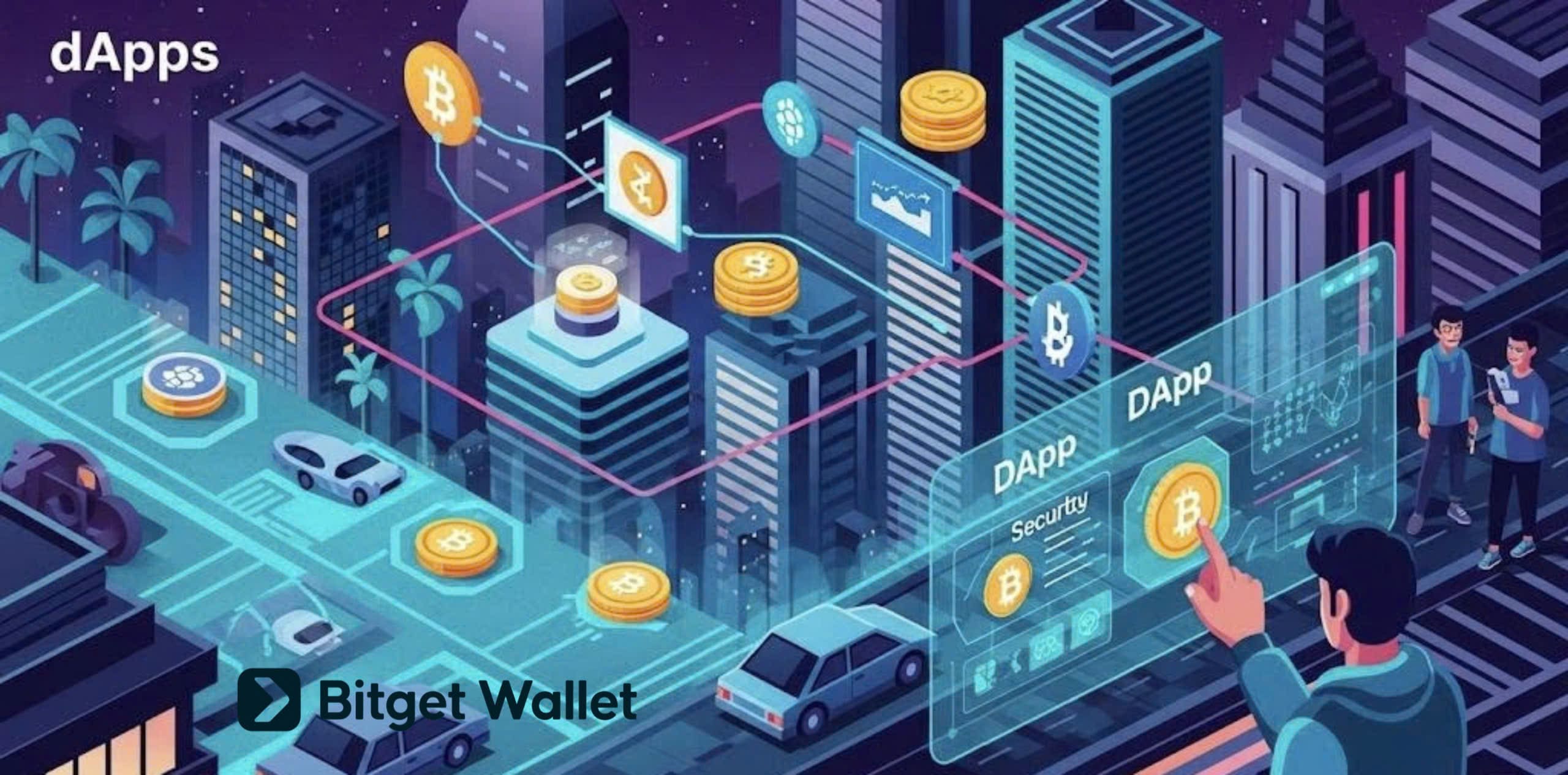
How to Access and Use dApps Safely with Bitget Wallet?
Getting started with decentralized applications doesn’t require technical expertise. With tools like Bitget Wallet, interacting with dApps across multiple blockchains becomes fast, secure, and beginner-friendly. Here’s a step-by-step guide to using dApps the right way.
Step 1: Download and Set Up Bitget Wallet
You’ll first need a Web3 wallet to connect to dApps. Bitget Wallet offers both mobile and browser extension versions:
- Download Bitget Wallet for iOS or Android
- Install the Chrome extension for seamless browser-based use
Create a new wallet or import an existing one using your 12-word seed phrase. Make sure to back it up securely—your seed phrase is your only way to recover funds.
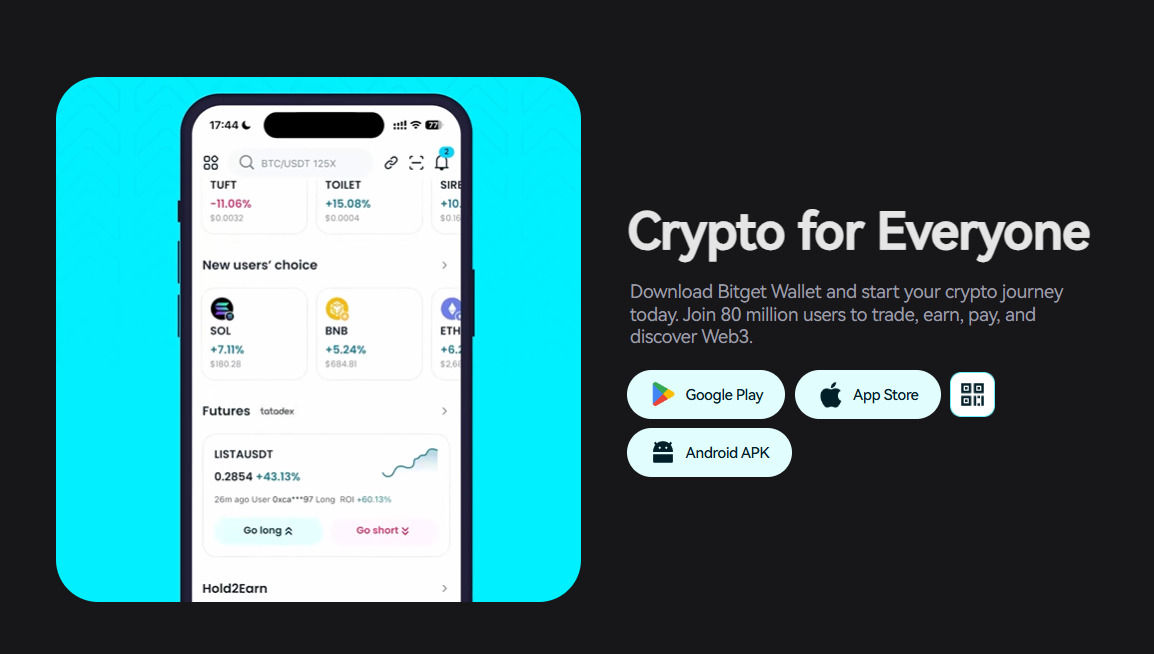
Step 2: Explore the dApp Browser
Bitget Wallet includes a powerful dApp browser with access to thousands of verified dApps:
- Select “Discover” in the wallet interface or visit https://web3.bitget.com/en/dapp
- Search or browse categories like DeFi, NFT, Games, Tools, and Social
- Featured platforms include Uniswap, Pump.fun, Let’sBonk.fun, Zora, and more
With no need to switch networks manually, Bitget Wallet auto-detects the chain and connects your wallet in one tap.
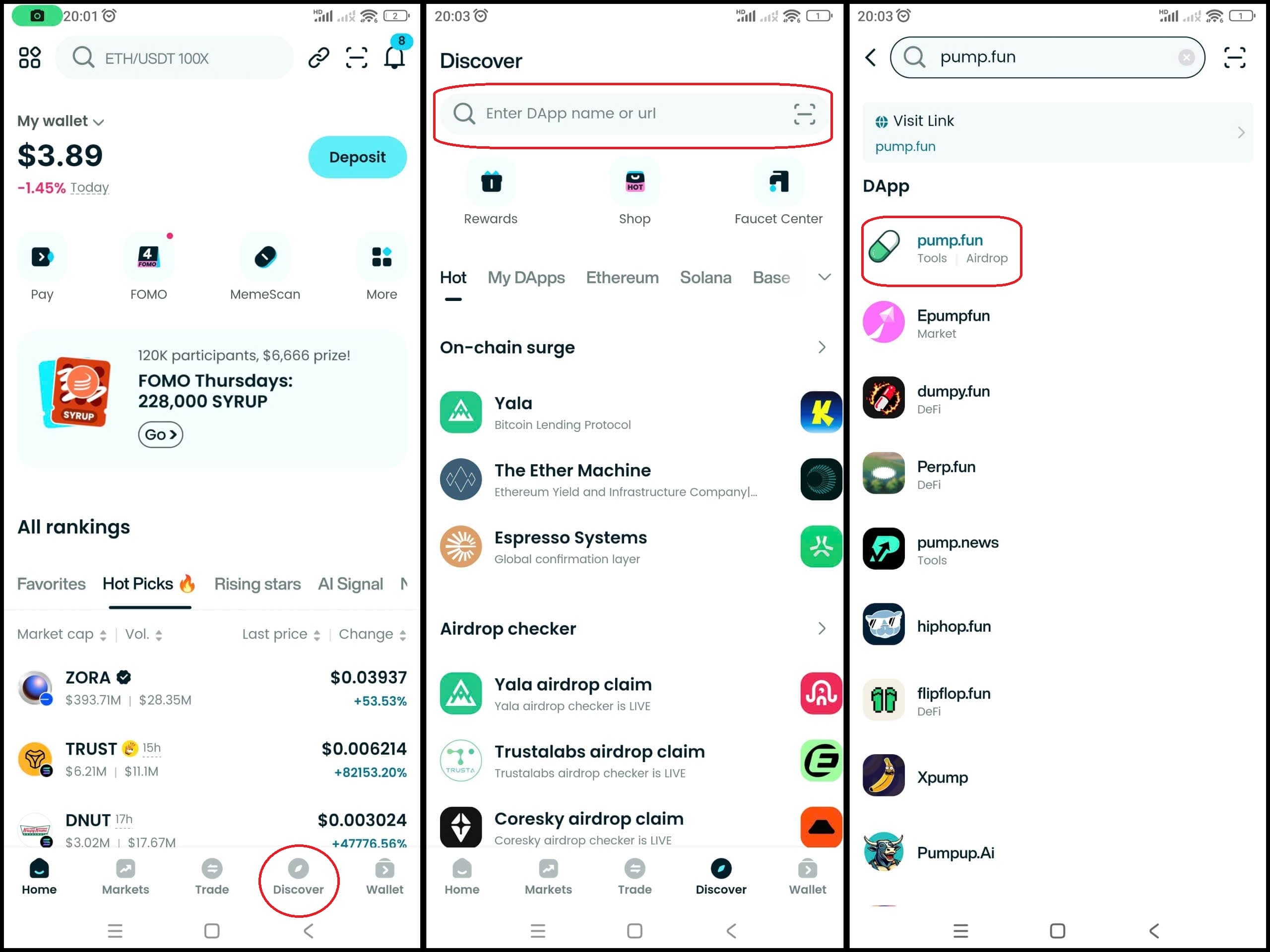
Step 3: Connect and Interact Securely
Once inside a dApp:
- Click “Connect Wallet” and choose Bitget Wallet
- Approve transaction prompts carefully—read gas fees, token amounts, and permissions
- Watch out for fake dApps or phishing clones; only use links from trusted sources
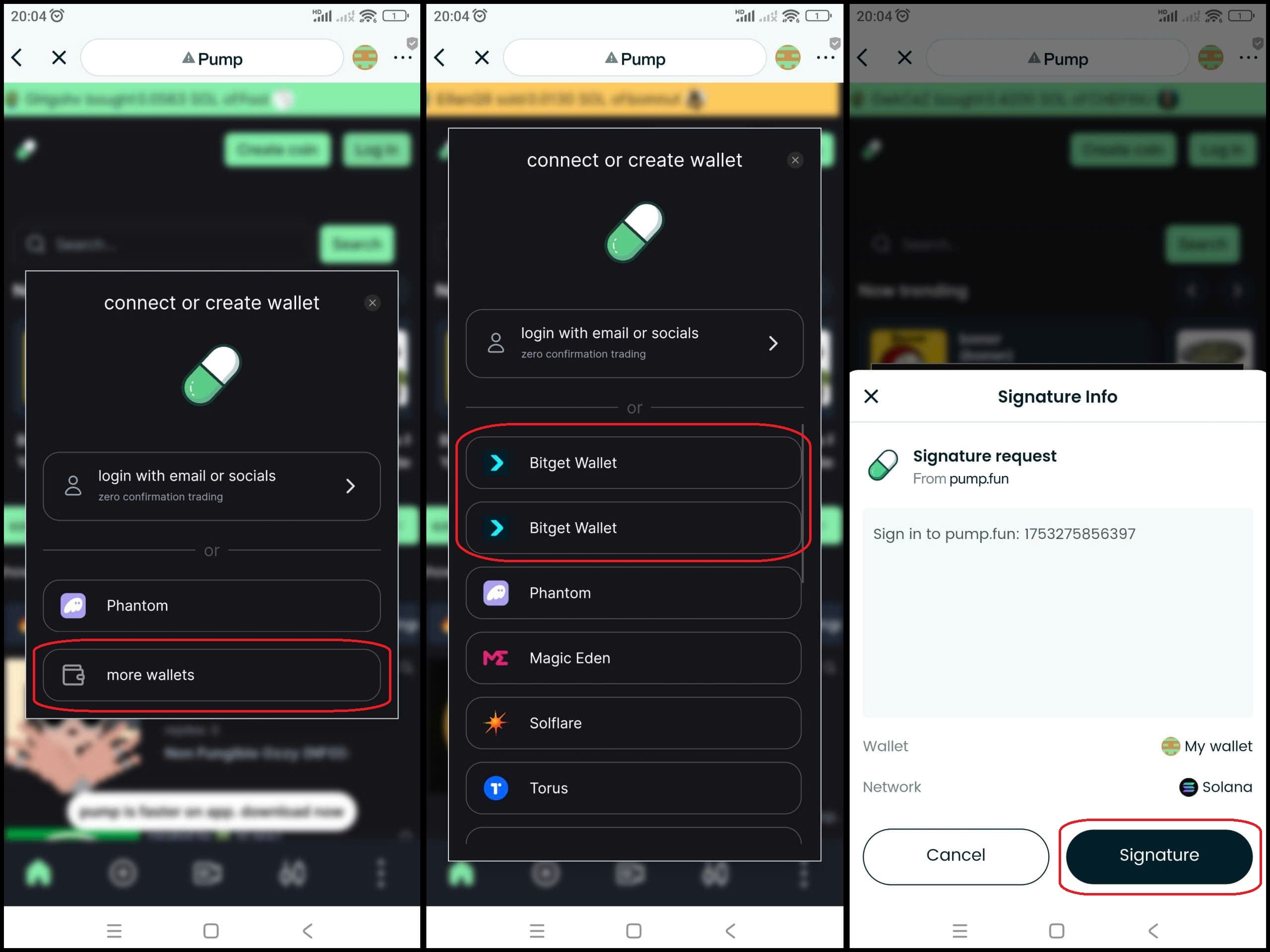
For extra safety, Bitget Wallet features:
✅ Token risk alerts and scam detection
✅ Built-in price tracker and gas estimator
✅ Multi-chain switching and one-click approval history
Step 4: Manage Your Assets and Activity
After using a dApp:
- View all your token balances, NFTs, and on-chain activity in Bitget Wallet’s dashboard
- You stay in full control—no custodians, no forced KYC
Tip: Always disconnect from dApps you no longer use, and use hardware wallet support for large-value transactions.
Conclusion
What is a DApp? Dapp is a decentralized application, powered by smart contracts on the blockchain platform, providing an open, transparent and user-led experience in areas such as DeFi, NFT, gaming and more.
DApps are no longer fringe experiments - they have become the foundation of the decentralized Internet. As more users care about privacy, ownership and financial freedom, dApps are an attractive alternative to traditional applications.
With tools like Bitget Wallet, exploring this digital world is easier than ever. Whether you are a beginner minting your first NFT or a professional trader manipulating DeFi liquidity pools, Bitget Wallet offers the ultimate triple security - speed - convenience.
👉 Download Bitget Wallet for seamless stablecoin and memecoin multi-chain trading!
FAQs
What will be the most used DApps in 2025?
As of 2025, the top popular dApps include Uniswap (for decentralized trading), Pump.fun (which issues meme coins on Solana), and Friend.tech-style social dApps on Base. Usage trends are constantly changing with the explosion of new ecosystems.
Are DApps legal and regulated?
DApps themselves are decentralized source code, but their use may be subject to local laws, especially in financial applications. Users should update themselves on crypto regulations in their area.
Can I use a dApp without knowing how to code?
Absolutely! Most dApps have a friendly interface. With Bitget Wallet, you can connect and interact with dApps in just a few clicks - no coding required.
Is Bitget Wallet safe to access dApps?
Yes. Bitget Wallet is a non-custodial multi-chain wallet with built-in security features like fraud alerts, token approval controls, and transaction previews. You always hold your own private keys.
Risk Disclosure
Please be aware that cryptocurrency trading involves high market risk. Bitget Wallet is not responsible for any trading losses incurred. Always perform your own research and trade responsibly.
- What Is Crypto Fear and Greed Index: How Traders Read Fear vs Greed Signals2025-11-19 | 5 mins
- How to Pay with Crypto: Fast, Safe, and Beginner-Friendly Method2025-11-18 | 5 mins
- How to Convert Your Crypto to Cash: 5 Easy Ways for Beginners2025-11-18 | 5 mins








